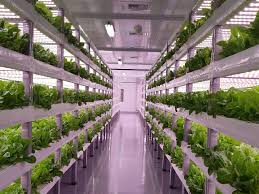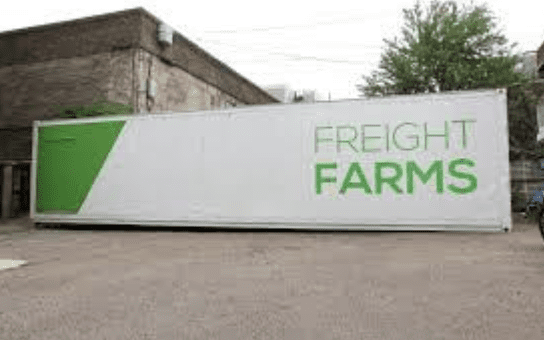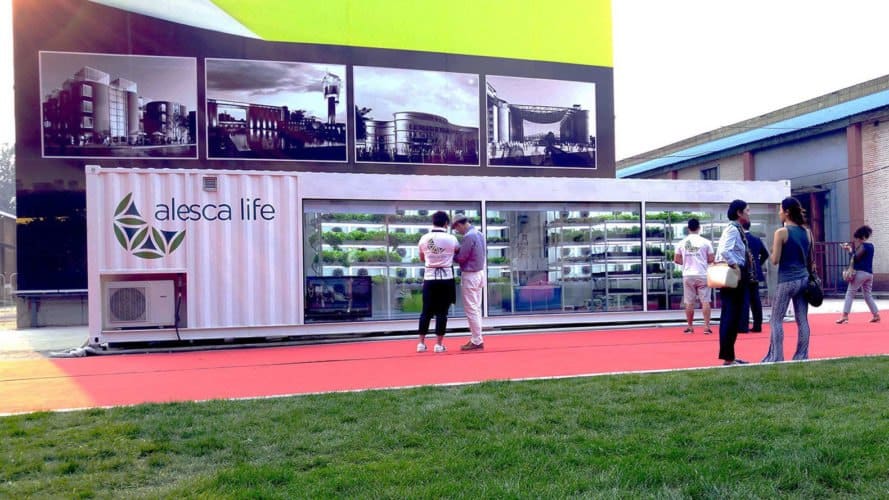Jump to:
There is growing interest in using shipping containers for innovative, flexible, and cost-effective solutions in crop production, storage, and equipment housing. The Agriculture and Farming industry has transformed these containers into controlled-environment farms, enabling year-round growing and vertical farming in limited spaces. They also support sustainable practices like hydroponics and reduce resource use. Additionally, their mobility and scalability make them ideal for urban farming and adapting to changing demands or climate conditions.

Here are the key benefits:
Year-Round Farming
Allows farmers to grow crops year-round, regardless of weather conditions and increases crop yields and allows for consistent production, even during off-seasons.
Space Efficiency
In vertical farming this enables farmers to maximize limited space by growing crops in stacked layers, allowing higher productivity on smaller plots
Sustainable Resource Use
Integrated with hydroponic, aquaponic or aeroponic systems, which reduce the need for soil and use significantly less water than traditional farming methods
Cost-Effective Farming
Since shipping containers are relatively affordably compared to traditional building of permanent structures like greenhouses or storage facilities.
Mobility and Flexibility
Because containers are mobile, farmers can transport their farming operations or storage units when needed. Especially when set up on leased land or as response to disaster relief farming.
Urban and Local Food Production
Containers can be easily placed in city spaces or unused lots, promoting local food production. This reduces long distance transportation, lower food costs and provides fresher produce to local consumers.
Controlled Environments for Higher Yield
By controlling temperature, humidity, and light, shipping containers provide ideal growing conditions, resulting in faster crop growth, higher quality produce, and the ability to cultivate delicate or exotic crops that may not flourish outdoors.
Reduction of Crop Loss
Containers can serve as cold storage or refrigerated units, preserving harvested crops, and minimizing post-harvest losses. This is especially important for perishable goods in areas with limited access to cold storage facilities.
Resilience Against Climate Change
By growing crops in a controlled environment, farmers are less vulnerable to unpredictable weather patterns, droughts, or floods. This provides climate resilience, ensuring more stable and reliable production.
Sustainability and Eco-Friendly Practices
Shipping container farming systems often use less energy and fewer resources compared to traditional farming.
Storage Solutions for Equipment and Produce
Great for secure, weather-resistant storage for agricultural equipment, tools, fertilizers, and harvested crops. This protects valuable assets and reduces the risk of theft or spoilage.
Mobile Processing Units
Containers can be turned into a mobile processing units, which allows farmers to process, package, and distribute their products directly from the farm. This reduces the need for transportation and improves the farm-to-table process.
Experimentation and Innovation
Testing for new agricultural techniques or technologies, such as precision agriculture, sensor-based monitoring, and automated irrigation systems that helps farmers stay competitive.
Scalability
Add more shipping containers to your operations as your business grows, allowing scaling of production and makes it more cost-effective and provides flexibility for future expansion.
Ready to purchase a shipping container? Reach out today to get a quote from the best in the industry!

What type of FARMS use shipping containers
- Urban Farms
- Vertical Farms
- Organic Farms
- Hydroponic and Aquaponic Farms
- Controlled Environment Farms (CEA)
- Livestock Farms
- Food Security Farms
- Commercial Crop Farms
- Microgreens and Herb Farms
- Research and Experimental Farms
Ready to purchase a shipping container? Reach out today to get a quote from the best in the industry!

Innovative Ways The Agriculture & Farming Industry uses Shipping Containers:
- Cold Storage: Containers can be converted into refrigerated units to store perishable crops, reducing post-harvest losses and preserving the quality of produce.
- Controlled Environment Farming: Farmers can transform containers into controlled environment farms, enabling year-round crop production with regulated temperature, light, and humidity for optimal growing conditions.
- Vertical Farming: Shipping containers allow for vertical farming, maximizing space efficiency and producing more crops in a smaller area, particularly in land-limited environments.
- Sustainability: Containers can support sustainable farming practices, such as hydroponics or aquaponics, which use less water and resources compared to traditional farming.
- Farmers’ Markets or Retail: Farmers can use containers as mobile retail spaces or pop-up shops to sell their produce directly to consumers.
Are you interested in purchasing a Shipping Container? Call Container Sales Group 708 639-4783
